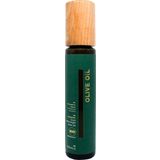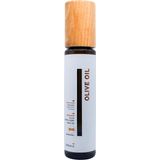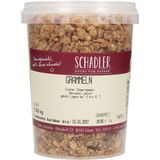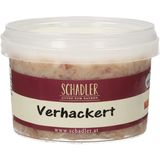Tips for Using Seasonings
A spice is anything you add to food while cooking to improve its taste. Examples of seasonings could be salt, pepper, herbs, spices or even lemon juice. Here are seven common seasoning mistakes and how to avoid them!
Don't forget to taste your food!
This is a super simple mistake that can have disastrous consequences!
Taste your dish along the way to make sure the flavour is balanced and adjusted and to avoid mistakes.
Using pre-ground pepper
Pepper is without a doubt one of the two most important spices in Western cuisine, next to salt. No matter how you look at it though, there is no excuse for pre-ground pepper. Today you can buy whole peppercorns in a small recyclable glass mill. They work just as well as expensive pepper mills, but that's not the point. The point is that freshly ground pepper simply has a superior taste. Like all ground spices, ground pepper loses its flavour over time. Not only that but freshly ground pepper's coarser grain gives it a different mouthfeel. There is just no comparison between pre-ground and freshly ground pepper.
Skimping on the salt
Salt is an absolute basic ingredient; even desserts are refined with a pinch of salt. We need it for seasoning meat, pasta, potatoes and more.
Recipes often state that you should salt according to taste. This means that you should be able to taste at least a hint of salt in the finished dish. So salt well while cooking and taste again before serving.
Adding dried herbs too late
Herbs are basically made of the dried leaves of plants. If possible, you should always use fresh herbs because they have more flavor. Since it is not always possible to find fresh herbs, dried herbs are better than nothing! Just make sure to add dried herbs at the beginning of cook time and fresh herbs only after you're finished cooking. This is because fresh herbs contain essential oils that quickly evaporate with heat. Dried herbs, on the other hand, take longer to release the oils they contain. For salad dressings, it may take several hours before the flavours of the dried herbs unfold (because there is no heat involved).
Don't forget the lemon!
Lemon juice is a seasoning that fits perfectly with fish and seafood because it adds a note of freshness. It also tastes great with fruit and vegetables. As a rule of thumb, if a vegetable tastes good with melted butter, it will also taste great with fresh lemon juice. Broccoli, asparagus, beets, cabbage or mushrooms are all delicious when served with lemon juice.
Of course, lemon juice is also perfect for homemade salad dressings, sauces or soups. The astringent effect of lemon gives the dishes a little kick.
Using stale spices!
Whether made from the leaves, bark, seeds, buds or roots of a plant, herbs and spices tend to lose their flavours over time, especially once they have been ground. To avoid using stale spices, try to use fresh spices wherever possible. Buy a coffee grinder or mortar and pestle and grind your spices fresh when you need them. Always use as little pre-ground spices as possible.
Using spices with MSG
MSG stands for Monosodium Glutamate. It is a "spice" derived from an amino acid. MSG naturally occurs in certain foods, such as Parmesan or various mushrooms. MSG is the origin of the flavor umami, which means savoury.
Umami also enhances other flavors. Food tastes better with MSG, that's undeniable. MSG has received a lot of bad publicity as it has been attributed to having negative effects on the body. MSG is found in many products, including soup cubes, packaged spices and seasoning salts. Monosodium glutamate also has the following names:
- monosodium glutamate
- L-sodium glutamate
- Sodium L-glutamate monohydrate
- E 621
If you were not aware that your products contain MSG, this is just a note to use them with awareness.
Latest reviews
-
 1.0 (1)
1.0 (1)Greenomic Organic Green Extra Virgin Olive Oil, 250 ml
-11%- Unfiltered
- Mild taste
- Made from 100% Patrinia olives
€ 13,41 € 14,99 (€ 53,64 / l)Delivery by February 04
-
 1.0 (1)
1.0 (1)Greenomic Organic White Extra Virgin Olive Oil, 250 ml
-16%- Medium fruity
- Made from Koroneiki olives
- Hand-picked & unfiltered
€ 12,66 € 14,99 (€ 50,64 / l)Delivery by February 04
-
 € 7,19 € 7,99 (€ 35,95 / kg)
€ 7,19 € 7,99 (€ 35,95 / kg)Delivery by February 04
-
 3.6 (8)
3.6 (8)Schadler "Verhackert" Bacon Spread, 220 g
-10%- Styrian quality
- Perfect as a spread
- Made with high-quality pork
€ 4,13 € 4,59 (€ 18,77 / kg)Delivery by February 04
Magazine Articles:
Discover Piccantino :
-
Austria: Free standard delivery from € 54,90
-
Free
returns -
24-hour shipping
More than 12.700 products

